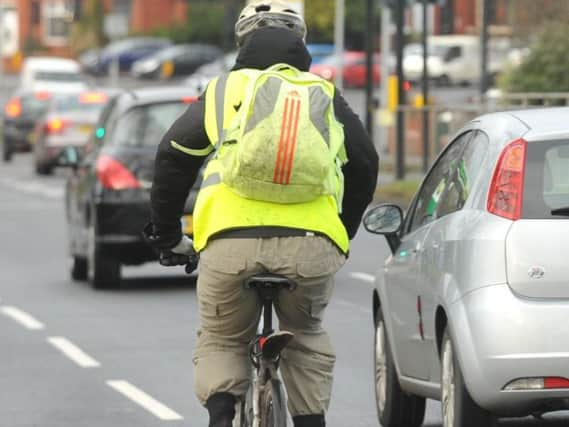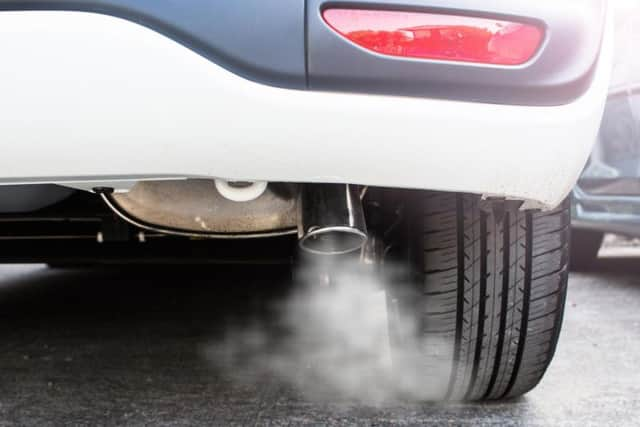Cycling charity voices concerns over pollution levels in Leeds, Hull and York


New statistics released by the Department for Environment, Food and Rural Affairs (Defra) show that in 2018 Leeds city centre had 16 'moderate' or above average days when pollution levels were considered dangerous. It compares to 12 in 2017 and 10 in 2016, although in 2011 there were 30 days.
Across the UK, the highest pollution levels were recorded in Reading New Town, which racked up 39 above average pollution days, followed by Port Talbot with 35 and Marylebone Road, London with 32. Hull Holderness recorded four days where pollution levels were of concerns, compared to two last year, while York Fishergate notched up three, compared to 10 last year.
Advertisement
Hide AdAdvertisement
Hide AdKevin McCann from Sustrans in Leeds said: “Air pollution is a real threat to people’s health as well as to the natural environment, contributing to rising annual temperatures.


“Many parts of Yorkshire suffer from poor air quality, largely due to chronic traffic congestion. It’s no secret that air pollution damages our health, cutting short thousands of lives in Yorkshire alone and is linked to an increase in conditions such as asthma, heart disease and dementia.
“If we are really serious about improving the quality of the air we breathe, we need to make lifestyle choices that contribute fewer emissions. In transport terms, we need to reduce our over-dependence on single passenger motor transport and make it easier for more people to travel by bicycle or on foot.
“There are lots of exciting plans to develop more active travel in Leeds, Sheffield and York but this is just the beginning. If we are really serious about tackling air quality in our towns and cities we need long term investment to make our towns and cities safe and attractive places for cycling and walking. As well as building infrastructure such as cycle lanes this means looking at ways to incentivise cycling and walking over cars, such as restricting traffic in built up areas, reducing parking or closing roads around schools.
Advertisement
Hide AdAdvertisement
Hide Ad“We know from our research for the Bike Life report of seven UK cities that the majority of residents want action to make our streets safer and cleaner and strongly support more investment in active travel, even if that means less space for cars. More cycling and walking wouldn’t just help improve our air quality. It is also part of the solution to many of our modern day problems, including childhood obesity, illnesses linked to inactivity and traffic congestion.”
Commenting on the report, Dr Andy Cope, Director of Research and Monitoring at Sustrans, the walking and cycling charity, said: “The report from DEFRA indicates that overall levels of pollution have shown long-term improvement. However, we are concerned that roadside nitrogen oxide (NO2) and particulate matter (PM10) pollution is still high, with around 80 percent of NO2 concentrations coming from local transport sources.
“Air pollution is a real threat to people’s health as well as to the natural environment, contributing to rising annual temperatures.
“If we are really serious about improving the quality of the air we breathe, we need to make lifestyle choices that contribute to a reduction of harmful emissions. In transport terms, we need to put an end to the chronic traffic congestion our on roads and our over-dependence on single passenger motor transport.
Advertisement
Hide AdAdvertisement
Hide Ad“There is no ‘safe’ level of pollution. The UK Government can and must take action on air pollution now.
“We urgently need a new clean air legislation which sets new binding targets for air quality and brings together transport, health and environment policies to prioritise prevention work to support clean air across the UK. At the heart of this we want to see investment in cleaner, healthier means of transportation, including walking and cycling, and initiatives such as Ultra Low Emission Zone and school street closures to help people choose walking and cycling for their regular journeys.”